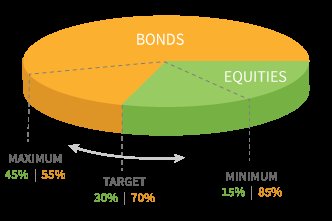Are you looking to save money on your grocery shopping? Well, look no further! We’ve got you covered with some practical tips on how to save money on grocery shopping without compromising on the quality of your meals. By making a few smart choices and implementing some easy strategies, you can significantly cut down your grocery bill and still enjoy delicious and nutritious meals. So, let’s dive in and learn how to save money on grocery shopping while still satisfying your taste buds and keeping your wallet happy.
How to Save Money on Grocery Shopping
Introduction
Grocery shopping is a necessary expense for every household. However, it can also be a significant drain on your budget if you’re not careful. The good news is that there are plenty of strategies you can implement to save money on your grocery bill. In this article, we will explore various tips and tricks that will help you stretch your dollars further while still enjoying nutritious and delicious meals. From planning your meals and shopping strategically to taking advantage of discounts and buying in bulk, we’ve got you covered.
Create a Meal Plan
One of the most effective ways to save money on grocery shopping is to create a meal plan. By planning your meals in advance, you can avoid impulse purchases and unnecessary trips to the store. Here’s how to do it:
- Take inventory of your pantry, fridge, and freezer. Determine what ingredients you already have and incorporate them into your meal plan.
- Consider your schedule for the week. Are there any days when you’ll have less time to cook? Plan for quick and easy meals on those days.
- Choose recipes that share common ingredients. This will help you reduce food waste and save money by buying ingredients in bulk.
- Make a list of the ingredients you need for each meal. Stick to this list while shopping to avoid buying unnecessary items.
Shop with a List
Once you have your meal plan ready, it’s time to go grocery shopping. But before you head to the store, make sure you have a list of the items you need. Shopping with a list is essential for several reasons:
- It helps you stay organized and focused, preventing impulse purchases.
- You can quickly navigate through the store, saving time and reducing the chances of buying unnecessary items.
- A list ensures you don’t forget any essential items, reducing the need for multiple trips to the store.
- Having a list also allows you to compare prices and choose the best deals available.
Shop in Bulk
Buying in bulk is an excellent way to save money on groceries, especially for items that have a long shelf life. Here are some tips for shopping in bulk:
- Identify the items you frequently use and that have a longer shelf life, such as grains, pasta, canned goods, and frozen foods.
- Compare prices per unit to ensure you’re getting the best deal. Sometimes, buying smaller packages can be more cost-effective.
- Consider joining a warehouse club or shopping at bulk stores where you can find larger quantities at lower prices.
- Be mindful of storage space. Ensure you have enough room to store bulk purchases to avoid waste.
Take Advantage of Discounts and Coupons
To save even more money on grocery shopping, make it a habit to look for discounts and coupons. Here’s how you can take advantage of them:
- Check your local grocery store’s weekly ads and flyers for sales and promotions. Plan your shopping around these discounts.
- Sign up for loyalty programs and reward cards offered by grocery stores. These programs often provide exclusive discounts and coupons.
- Utilize coupon websites and apps to find digital coupons and deals. Some apps even offer cashback on certain purchases.
- Consider using rebate apps where you can earn money back on specific products after submitting a receipt.
Shop Seasonally and Locally
Buying produce that is in-season and locally sourced can help you save money and support local farmers. Here’s why:
- Seasonal produce is usually more abundant, resulting in lower prices.
- Local farmers’ markets often offer fresh produce at competitive prices.
- Locally sourced products have shorter transportation distances, reducing costs and environmental impact.
- Shopping seasonally and locally allows you to try new fruits and vegetables while supporting your community.
Avoid Shopping When Hungry
We’ve all experienced the temptation to buy more food when we’re hungry. Shopping on an empty stomach can lead to impulse purchases and overspending. Here’s how to avoid the urge to splurge:
- Eat a meal or a snack before heading to the grocery store. This will help curb your hunger and make you less likely to buy unnecessary items.
- Stick to your shopping list and avoid browsing aisles that contain tempting foods you don’t need.
- Shop during non-peak hours when the store is less crowded and you can shop more efficiently.
Consider Store Brands and Generic Options
Name-brand products often come with a higher price tag, while store brands and generic options can be just as good in terms of quality. Consider these advantages:
- Store brands are usually more affordable and offer similar quality to name brands.
- Generic options often have the same ingredients and nutritional value as their branded counterparts.
- Give store brands a try and compare them to your usual choices. You might be pleasantly surprised by the savings without compromising taste or quality.
Minimize Food Waste
One of the biggest money-wasters is food waste. By minimizing food waste, you can save money and contribute to a more sustainable lifestyle. Here’s how you can do it:
- Plan your portions and cook only what you need to avoid leftovers going to waste.
- Store food properly to extend its shelf life. Use airtight containers and freezer bags to prevent spoilage.
- Get creative with leftovers. Repurpose them into new meals or incorporate them into packed lunches.
- Compost food scraps to reduce waste and create nutrient-rich soil for your garden.
Saving money on grocery shopping doesn’t mean sacrificing the quality and variety of your meals. With smart planning, strategic shopping, and utilization of discounts and coupons, you can make your grocery budget go further. By implementing these tips and tricks, you’ll not only save money but also become a more mindful shopper. Remember, every dollar counts, and with a little effort, you can transform your grocery shopping habits and achieve significant savings. Happy shopping!
5 GROCERY SHOPPING HACKS THAT WILL SAVE YOU MONEY IN 2023 | HUGE GROCERY HAUL
Frequently Asked Questions
Frequently Asked Questions (FAQs)
How can I save money on grocery shopping?
One of the best ways to save money on grocery shopping is by planning your meals in advance. This helps you create a shopping list and avoid impulsive buying. Additionally, you can also try these tips:
- Compare prices between different stores
- Use coupons and take advantage of sales
- Buy in bulk for non-perishable items
- Avoid shopping when you’re hungry
- Consider buying store brands instead of name brands
- Shop seasonally for fruits and vegetables
- Avoid buying pre-packaged and convenience foods
- Take advantage of loyalty programs and rewards
How can meal planning help me save money on grocery shopping?
Meal planning helps you save money by allowing you to buy only the necessary ingredients for your planned meals. By having a clear plan, you avoid buying unnecessary items and reduce food waste. It also enables you to take advantage of bulk purchases and sales.
Why is it important to compare prices between different stores?
Comparing prices between different stores allows you to find the best deals and save money on your grocery shopping. Prices can vary significantly between stores, and by taking the time to do some research, you can identify the stores that offer the most affordable prices for the items you need.
How can I effectively use coupons to save money on groceries?
To effectively use coupons, start by collecting them from various sources such as newspapers, online coupon websites, or store apps. Match the coupons with items that are on sale to maximize your savings. Make sure to check the coupon’s expiration date and any restrictions before using them.
What are some strategies for buying in bulk?
Buying in bulk can be a great way to save money on grocery shopping. Some strategies to consider include:
- Finding a suitable storage space for bulk items
- Checking the unit price to ensure you’re getting the best deal
- Splitting bulk purchases with friends or family members
- Buying non-perishable items that you frequently use
How can I resist the temptation to impulse buy?
To resist impulse buying, make sure you go grocery shopping with a list and stick to it. Avoid shopping when you’re hungry as it can lead to impulsive decisions. Additionally, try to shop alone if possible, as shopping with others can sometimes lead to peer-influenced purchases.
Are store brands as good as name brands?
Store brands often offer similar quality to name brands at a lower price. They are typically produced by the same manufacturers but sold under the store’s brand name. Give store brands a try as a cost-saving alternative, and you might be pleasantly surprised by their quality and value.
How can I make the most out of loyalty programs and rewards?
To make the most out of loyalty programs and rewards, sign up for them at your favorite grocery stores. Take advantage of special offers, discounts, and personalized coupons that are tailored to your shopping habits. Some loyalty programs also offer points that can be redeemed for additional savings or free products.
Final Thoughts
In conclusion, saving money on grocery shopping is a smart and practical approach to managing your budget effectively. By planning your meals, creating shopping lists, and comparing prices, you can significantly cut down on unnecessary expenses. Additionally, taking advantage of sales, using coupons, and considering store brands can further help you save money. Lastly, buying in bulk and avoiding impulse purchases are crucial strategies to keep in mind. By implementing these tips and tricks, you can master the art of saving money on grocery shopping while still enjoying nutritious and delicious meals. So, start applying these strategies today and see the positive impact on your wallet.



